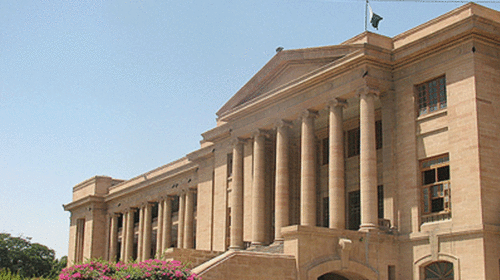Sindh High Court on Monday dismissed a lawsuit filed by a former chief executive officer (CEO) of Hascol Petroleum, seeking injunction against proceedings of the Senate’s Standing Committee on Petroleum over allegations of corruption during his tenure at the company.
Plaintiff Saleem Butt, former CEO of HASCOL, and others have challenged the allegations leveled by Pakistan Muslim League (N) Senator Dr Afnanullah Khan in a letter to chairman senate standing committee as well as proceedings of parliamentary committee meeting.
Senator Khan had drawn attention of the chairman of the Senate panel towards the financial default of Rs74 billion, saying these were serious allegations and merit scrutiny by the committee as public money is involved.
The plaintiffs have sought injunctions restraining the defendant from initiating participating in any derogatory and prejudicial meeting/inquiry against the plaintiffs through the Senate petroleum committee pursuant to the letter issued on July 6, 2021.
Plaintiff’s counsel submitted that the impugned letter was not actuated on bona fides and was the consequence of a financial disagreement between the plaintiff and defendants hence, the suit ought to be sustained, interim order confirmed and the plaint in any event could not be rejected piecemeal.
The defendant’s counsel said the present suit was barred by law, specifically the constitution, and even otherwise no actionable cause had accrued to the plaintiffs, hence the plaint merited rejection.
SHC’s single bench, headed by Justice Agha Faisal, after the hearing arguments of Senator’s counsel observed that application for interim relief seeked to restrain the defendant, a sitting Senator and member of the relevant committee, from participating in any meeting/proceedings pursuant to the impugned letter and from disseminating any remarks etc. prejudicial to the reputation and image of the plaintiff.
“The first segment of the relief claimed is prima facie repugnant to Articles 66 and 69 of the Constitution while the second limb is contradicted by the plaintiff’s counter affidavit in which it was deposed that instant suit is neither based on defamation nor do the plaintiffs wish to restrain the defendant from performing his lawful parliamentary duties,” the court remarked.
The court further observed that the stance of the plaintiffs was entirely self-contradictory and the court “expresses its inability to sustain the same”. “Notwithstanding the privileged nature of the impugned letter, it merely seeks determination of facts ostensibly in the national interest and nothing could be demonstrated to show how any actionable grievance arose therefrom.”
The court said the prayers’ clauses of the plaint appeared to be barred by the law being the Constitution in present facts and circumstances while the other prayer clause did not survive the anvil of section 42 of specific relief Act and even otherwise no actionable cause could be demonstrated to have occurred to maintain the lawsuit and dismissed the same.







